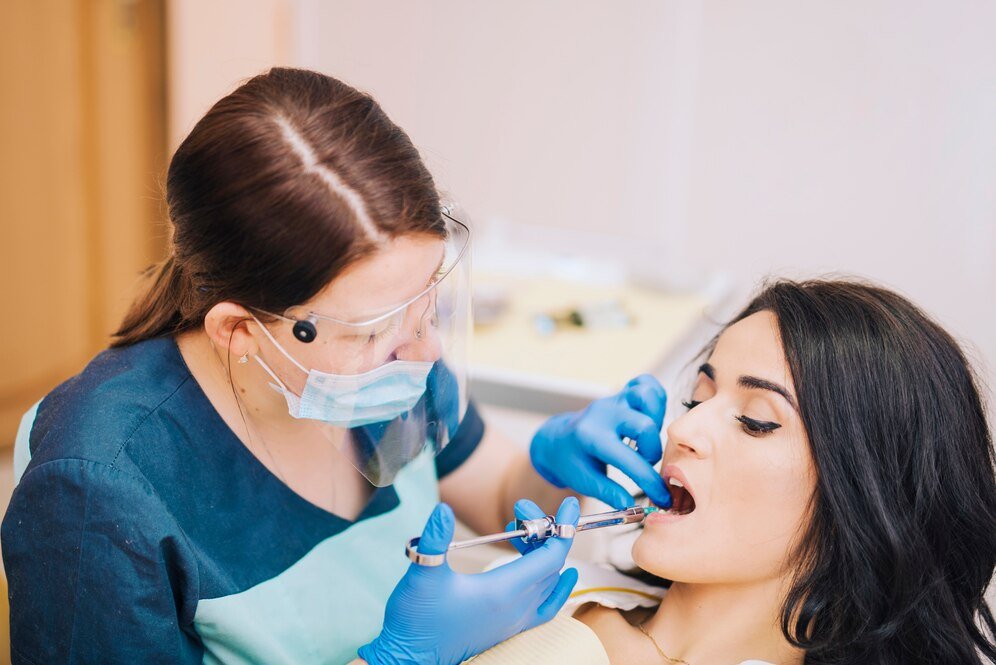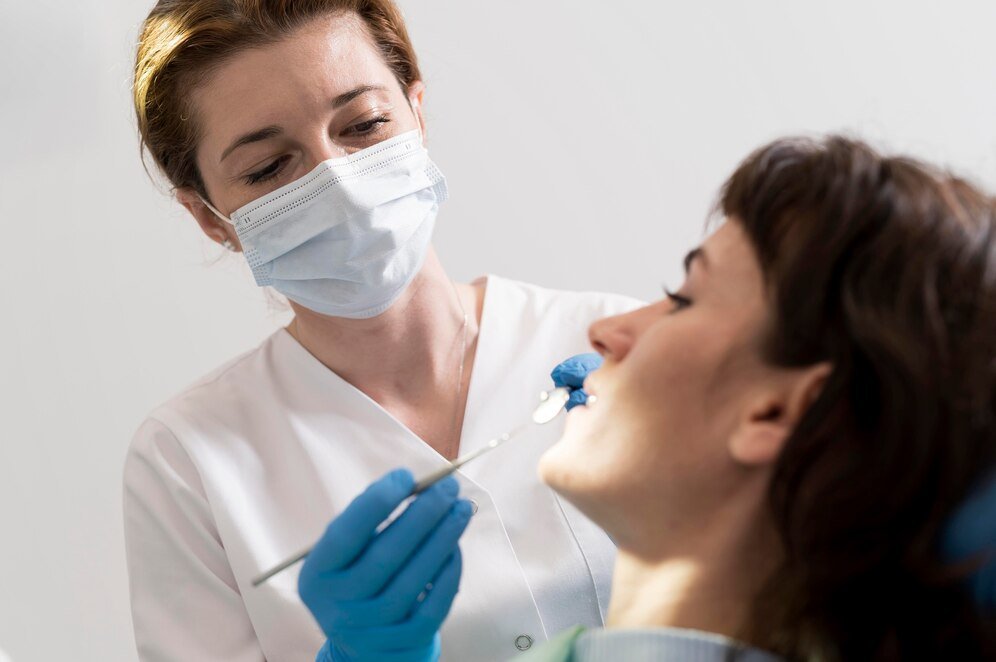Jaw Surgery

Overview of Jaw Surgery
Jaw surgeries are crucial procedures designed to correct dental and facial irregularities, ensuring optimal function and aesthetic appeal. At Kakkar Dental Clinic, we prioritize your comfort and well-being throughout the process.
- What are the different types of jaw surgery?
- Maxillary Osteotomy: Corrects the upper jaw
- Mandibular Osteotomy : Adjusts the lower jaw.
- Genioplasty : Reshapes the chin.
- Bimaxillary Surgery: Realigns both upper and lower jaws.
- TMJ Surgery: Addresses jaw joint disorders.
Procedure Details
How do people develop jaw bone problems?
Jaw bone problems can arise from genetics, developmental issues, trauma, or diseases. Poor dental health and prolonged teeth misalignment can exacerbate these conditions, leading to discomfort and functional difficulties.
What do I need to consider before having jaw surgery?
Before undergoing jaw surgery, consider your overall health, recovery time, and the complexity of the procedure. Discuss your goals with Dr. Nivesh Kakkar to ensure the best approach tailored to your needs.
What happens before this procedure?
Prior to surgery, you will undergo a comprehensive evaluation, including imaging studies. Dr. Kakkar will explain the procedure, discuss anesthesia options, and prepare you for the recovery process.

What is Jaw Surgery?
Jaw surgery, also known as orthognathic surgery, realigns the jaw and corrects bite issues. This procedure can enhance both function and appearance, addressing concerns like misalignment, overbites, and underbites.
What Happens after Jaw Surgery
Post-surgery, you may experience swelling and discomfort. A diet of soft foods is recommended, and follow-up visits are essential for monitoring your healing progress.
Risks & Benefits
Benefits
Improved function, enhanced facial appearance, and relief from pain.
Risk
Potential infection, nerve damage, or complications from anesthesia. Discuss these thoroughly with Dr. Kakkar.
FAQ
Surgery duration varies, typically lasting 2-5 hours depending on complexity.
Most patients require an overnight stay for monitoring, but this depends on the surgery type.
Initial healing may take 6-8 weeks, but full recovery can take several months.
Generally, jaw surgery is recommended for adolescents and adults once facial growth is complete.
Many insurance plans do cover jaw surgery if deemed medically necessary. Check with your provider for specifics.

